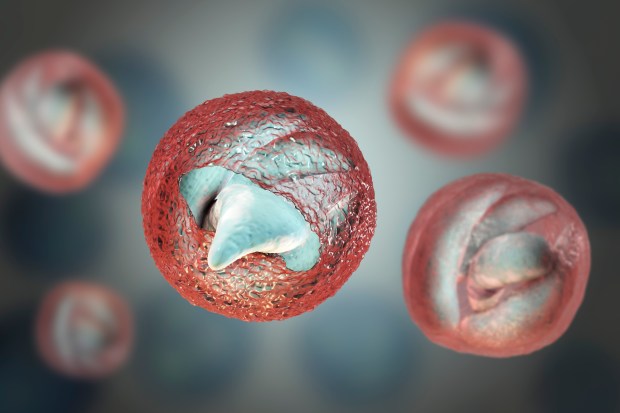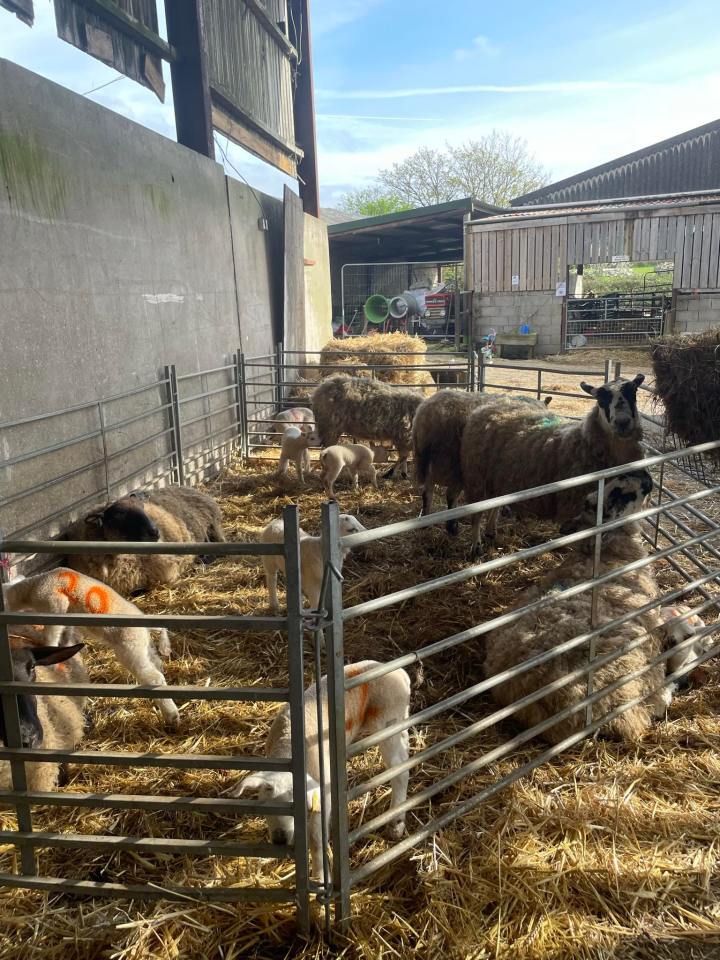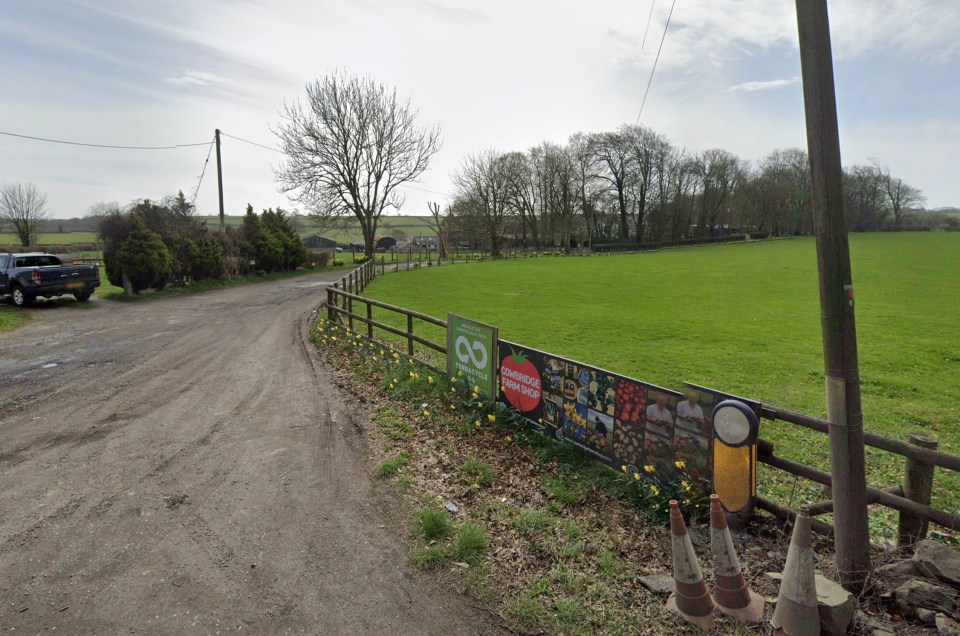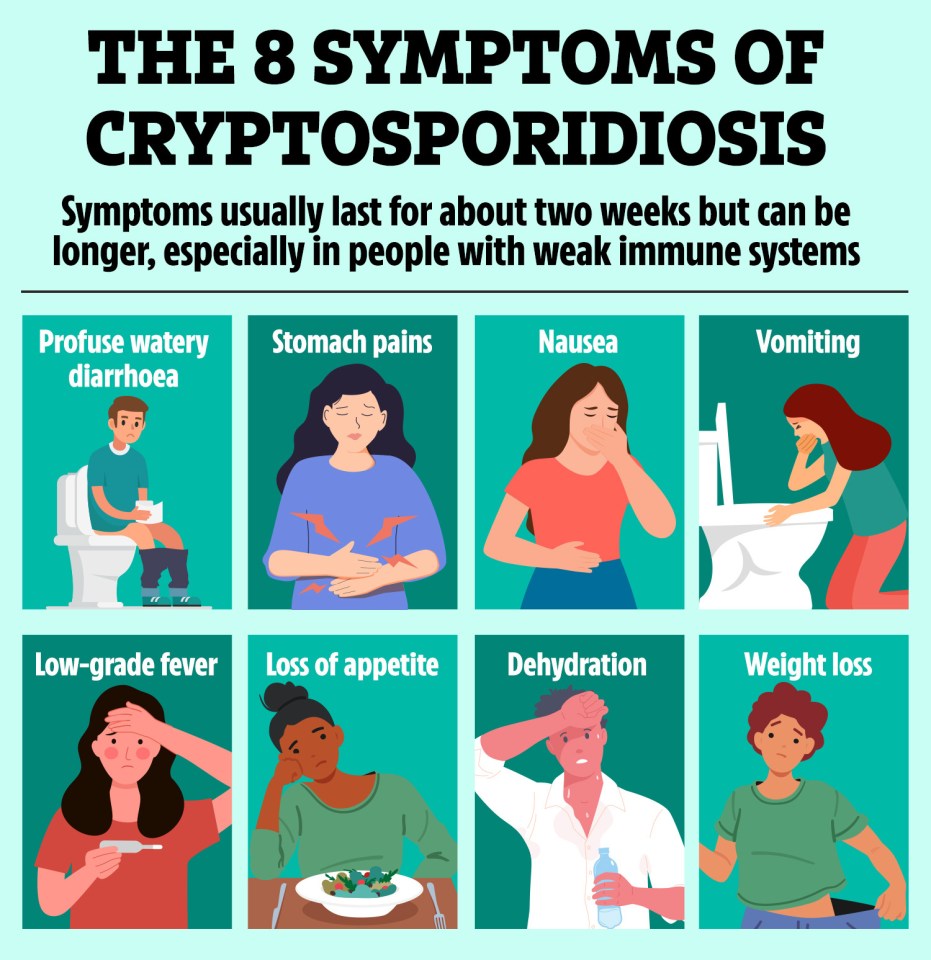THE number of people who have fallen ill with a parasitic infection after visiting a petting farm in Wales has risen to 78, health officials have confirmed.
Sixteen of those affected have been taken to hospital following visits to Cowbridge Farm Shop at Marlborough Grange Farm, in the Vale of Glamorgan.
All tested positive for cryptosporidium – a highly contagious parasite that causes cryptosporidiosis, an infection that can affect both humans and farm animals.
One of those who fell sick with little Alba Dobbinson.
The eight-year-old suffered nausea and diarrhoea after feeding lambs at the farm with her mother, Vici, on April 17.
Mum Vici said: “We were stunned because we had only been around other families and couldn’t pinpoint where Alba had caught it.
Read more on Cryptosporidium
“It’s not like a 48-hour bug, it can potentially go on for up to a month.”
She added: “She can’t even go to school, spend time with her friends or enjoy the weather.”
Gareth Carpenter, a dad whose son, Michael is suspected to have contracted the parasite at the farm said he had never seen his son as ill as he got after the infection.
“He’s had chicken pox, he’s had flu, he has had viruses, he had many, many, many things as you can imagine as kids do when they mix in with other children, but I’ve never, ever seen him that ill before,” he told WalesOnline.
“We had to put him back in nappies, just literally leaking. He was just leaking from them. It was horrendous, stomach pains and cramps,” he added.
The farm has since closed its doors to the public voluntarily, while health authorities investigate the outbreak.
“Due to the incubation period of the infection, it is expected that this number may continue to increase in the coming week,” a Public Health Wales (PHW) spokesperson warned.
The update on confirmed cases comes after a multi-agency outbreak control team held its third meeting on Thursday, 8 May.
Su Mably, consultant in health protection for PHW, said: “Although cryptosporidium infection is usually mild and clears up on its own, it can cause more serious illness in young children and people with weakened immune systems.”
The main symptoms of cryptosporidium infection according to the NHS include:
- Watery diarrhoea
- Stomach pains or cramps
- Nausea
- Vomiting
- Mild fever
- Loss of appetite
- Weight loss
- Dehydration
Symptoms usually start two to 10 days after infection and can last for around two weeks once they appear
Sometimes the illness may seem to improve as symptoms ease, but they can return before full recovery.
Su added: “If you visited the farm and feel unwell, please contact your GP or call NHS 111.
“It is possible for this infection to be passed on from one person to another.”
Due to the bug’s highly infectious nature people with symptoms such as diarrhoea and vomiting are told to stay off work or school until they have been free from these symptoms for at least 48 hours.
Touching infected poo and then putting your unwashed hands near your mouth is a common way of catching cryptosporidios.
This is because the bug lives in the intestines of infected humans and animals and is passed out in their poo.
“It is important to protect yourself by washing your hands well, particularly before preparing food,” Su added.
How can I protect myself against cryptosporidiosis?

The cryptosporidium parasite can be found in the intestines and faeces of infected humans and animals, according to UK Health Security Agency.
It may contaminate lakes, streams and rivers, swimming pools, untreated or poorly treated water and food – like raw milk and fresh produce – as well as objects such as farm gates and outdoor boots and clothing.
“Outbreaks of cryptosporidiosis have been linked to drinking or swimming in contaminated water and contact with infected lambs and calves during visits to open farms,” UKHSA said.
You can get cryptosporidiosis from another person or animal by touching faeces, for example when changing a nappy or petting a lamb and putting your hands near or in your mouth without washing them thoroughly.
You can also get the bug from swimming in or drinking contaminated water.
Occasionally, you can be infected by eating contaminated food, including unwashed or unpeeled vegetables or salads or drinking contaminated raw milk.
Children aged one to five are those most commonly infected with the bug and people with weak immune systems are likely to be more seriously affected.
Sufferers will usually be struck down with mild to severe watery diarrhoea.
Just last month health chiefs issued a warning to families planning to visit farms this spring, as a rise in temperatures could also see an increase in “harmful” pathogens.
Petting zoos in particular can expose visitors to gastrointestinal infections, they said.
Last year the UK Health Security Agency (UKHSA) issued a warning about the risk of cryptosporidium infection from farm visits.
In May 2024, more than 100 people were also infected by cryptosporidium in Brixham, Devon.
The outbreak was believed to be linked to water contaminated with infected faeces making its way into the drinking supply.
Whole streets in the town were infected, with victims forced to endure days of diarrhoea and agonising stomach cramps, with one sufferer even comparing them to ‘childbirth’.
And just one month earlier, dozens of parents and children fell seriously ill, and some were hospitalised, after visiting Gannow Farm in Worcestershire.




